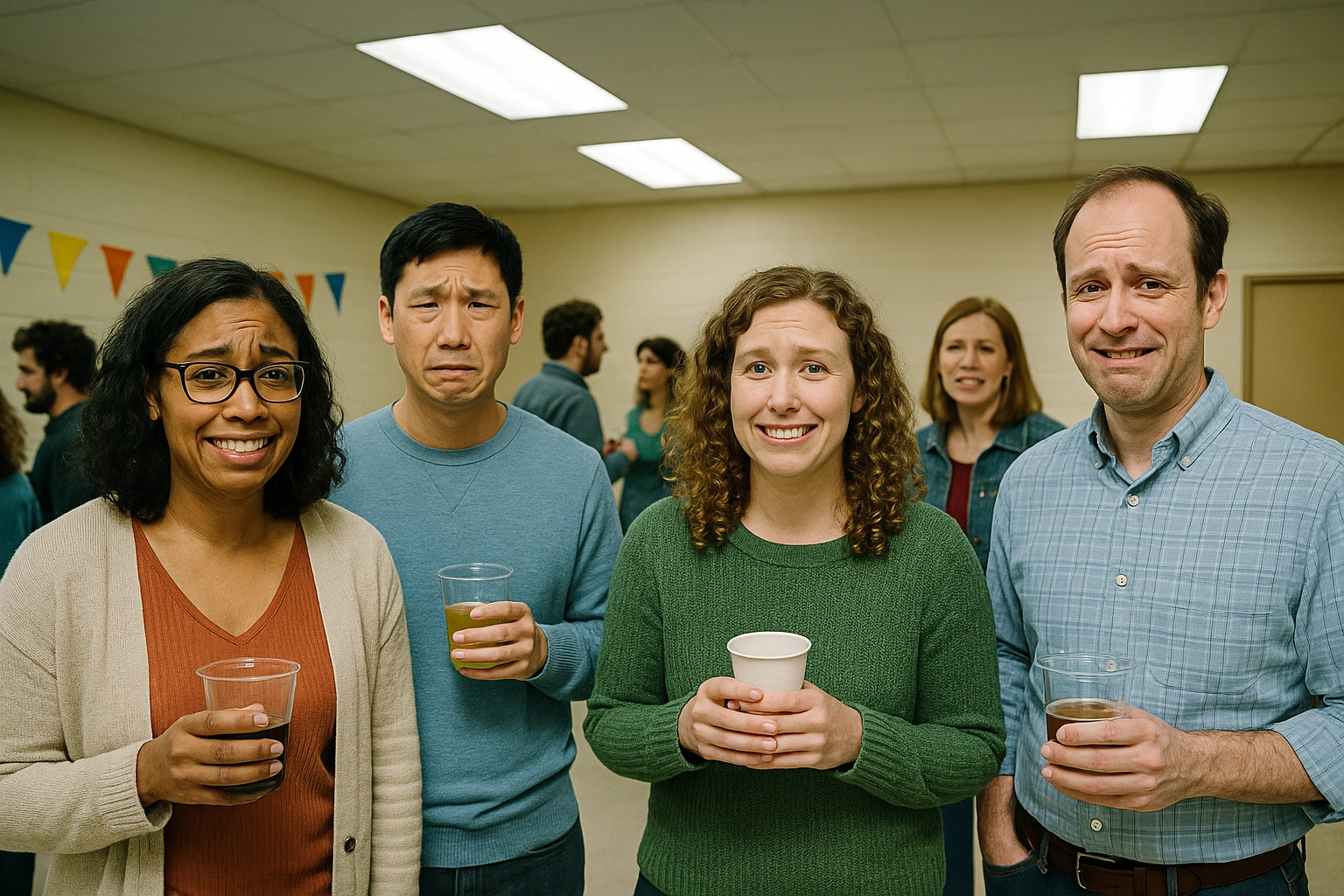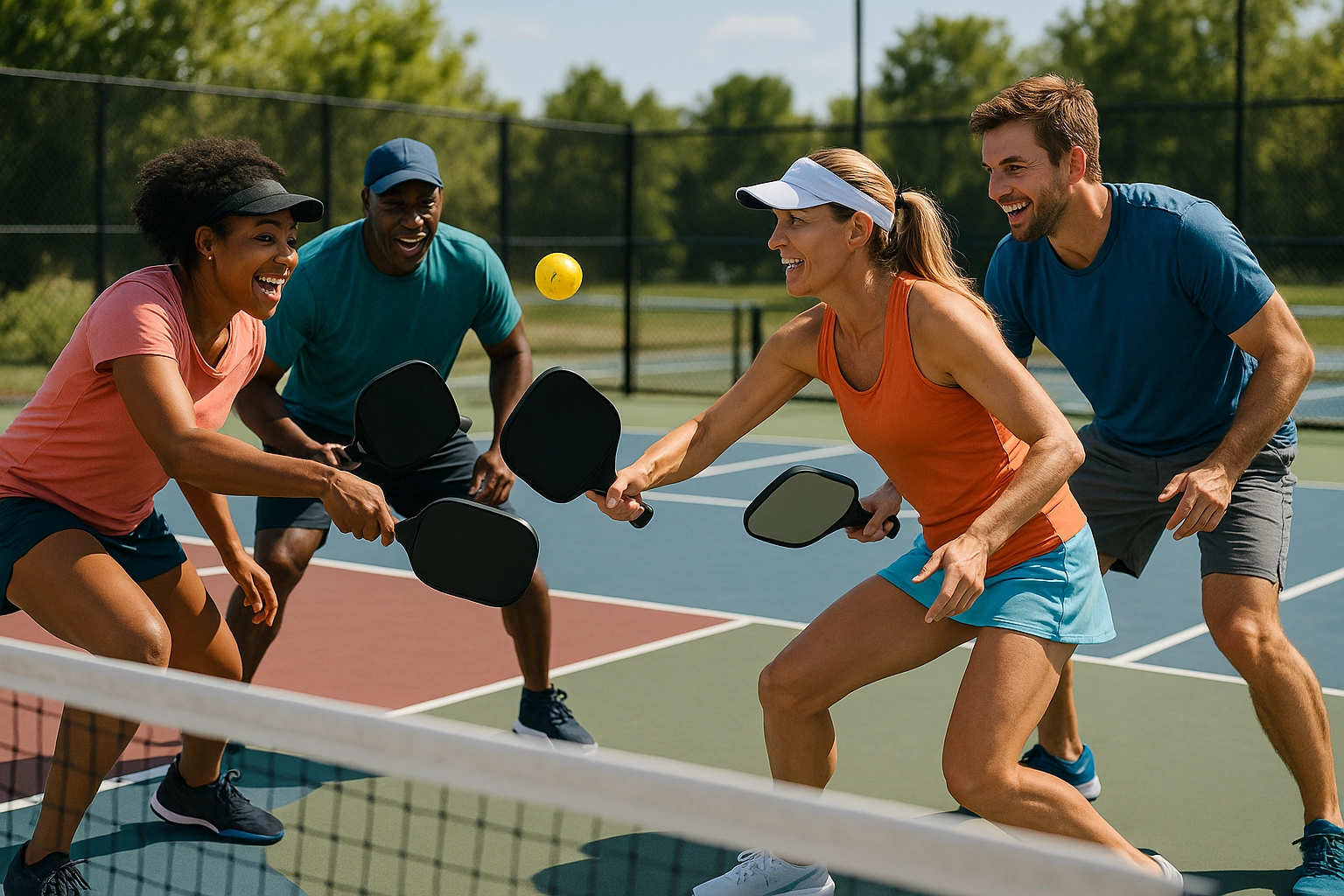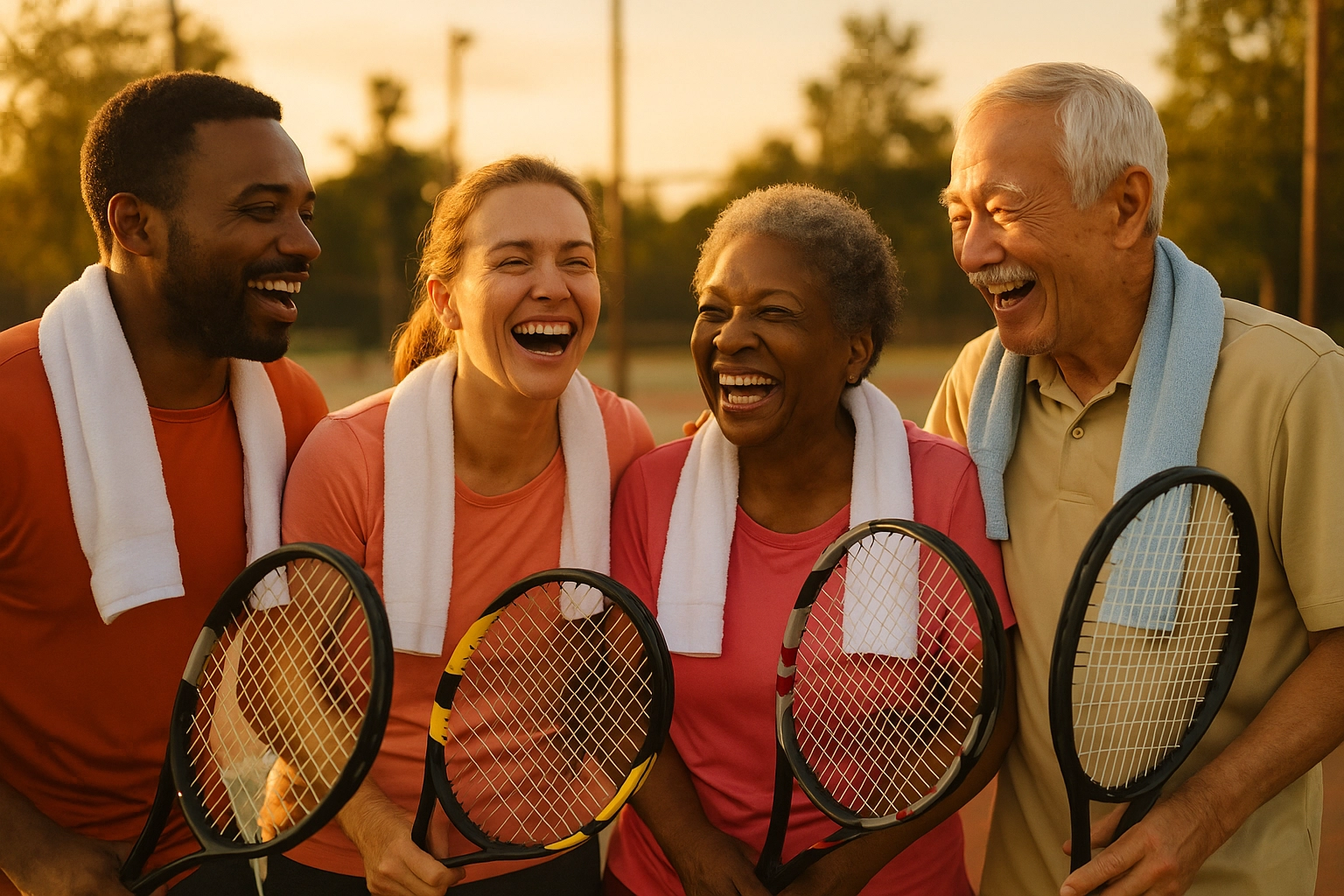Why Adult Sports Leagues Are the Secret to Solving Your Community's Social Isolation Problem
- luanneberk
- Sep 3, 2025
- 5 min read
Your HOA board meetings keep circling back to the same complaint: "Nobody knows their neighbors anymore." Residents shuffle from their cars to their front doors without so much as a wave. The community center sits empty most evenings. Social events get lukewarm responses at best.
Sound familiar? You're not alone. The U.S. Surgeon General has officially declared loneliness and social isolation a national epidemic, affecting communities nationwide. But here's what most HOA boards don't realize: the solution isn't another wine-and-cheese mixer or book club that three people attend.
The secret weapon against community isolation is hiding in plain sight: adult sports leagues.
Why Traditional Social Programs Miss the Mark
Before we dive into why sports leagues work so well, let's talk about why everything else falls flat. Most community social events are one-and-done affairs. A holiday party here, a barbecue there. They're nice, but they don't create lasting connections.
The problem? These events rely on people already being comfortable with socializing. They assume residents know how to strike up conversations with strangers, maintain small talk, and follow up afterward. For many adults: especially those feeling isolated: these skills have gotten rusty.
Plus, traditional social events often feel forced. There's an expectation to mingle and be "on," which can be exhausting for introverts or anyone dealing with social anxiety.

The Built-In Community Advantage
Sports leagues flip the script entirely. Instead of forcing social interaction, they make it natural and inevitable. When you join a tennis league or pickleball team, you're not just signing up for exercise: you're joining a built-in community of people with shared interests.
Think about it: teammates need to communicate to succeed. They strategize together, celebrate wins, and commiserate over tough losses. These shared experiences create bonds that extend far beyond the court or field.
Unlike awkward mixer conversations about the weather, sports give people something meaningful to discuss. Game strategies, technique improvements, upcoming matches: the conversation flows naturally because everyone's genuinely invested in the topic.
The Psychology Behind Why It Works
There's actual science backing up why sports leagues are isolation-busters. Research shows that collaborative activities: especially those with shared goals: trigger the release of endorphins and create stronger social bonds than passive social situations.
When adults work together toward a common objective (like winning a match), their brains release oxytocin, often called the "bonding hormone." This isn't just feel-good fluff: it's the neurochemical foundation of trust and friendship.
Sports also provide what psychologists call "parallel focus." Instead of staring at each other trying to make conversation, people focus on the activity while naturally connecting. It's like how some of the best conversations happen while driving: when you're not forced to maintain eye contact and can focus on something else.
The accountability factor is huge too. When you're part of a team, people are counting on you to show up. This built-in commitment helps combat the tendency to stay home and isolate, even when you're not feeling particularly social.

Breaking Down Barriers Across Demographics
One of the coolest things about sports leagues is how they naturally bring together people who might never interact otherwise. Age, profession, background: none of that matters when you're focused on returning a serve or sinking a free throw.
For older adults specifically, sports leagues offer something traditional senior programming often misses: the chance to feel competitive and vital. Instead of being treated like they need special accommodations, they're valued teammates contributing to shared success.
Working professionals find sports leagues provide the perfect decompression from job stress while maintaining social connections. After spending all day in meetings and emails, the physical activity and genuine human interaction feels refreshing rather than draining.
Even families benefit when parents join adult leagues. Kids see their parents staying active and social, modeling healthy relationship-building. Many leagues welcome family members as spectators, creating additional community connections.
The Ripple Effect on Community Health
Here's where it gets really interesting for HOA boards and property managers. Adult sports leagues don't just solve individual isolation: they strengthen entire communities.
Participants in sports leagues report higher satisfaction with their neighborhoods and greater likelihood to attend other community events. They're more likely to know their neighbors' names and feel invested in community wellbeing.
This translates to tangible benefits for HOAs: better attendance at meetings, more volunteers for committees, increased property values due to strong community culture, and fewer neighbor disputes because people actually know and like each other.
The social connections formed through sports also create informal support networks. When league members face challenges: job loss, health issues, family problems: their teammates often step up with practical help and emotional support.

Making It Work in Your Community
Ready to tackle social isolation in your HOA? Here's how to launch successful adult sports programs:
Start Small and Scale Up: Don't try to launch five different leagues at once. Pick one popular sport (pickleball and tennis are currently hot) and focus on making that program excellent. Success breeds success: once residents see others having fun and making friends, more will want to join.
Make It Accessible: Offer different skill levels and age groups. Nothing kills a program faster than beginners feeling intimidated by advanced players. Consider "social play" formats that emphasize fun over competition.
Facilitate Beyond the Games: The magic happens in the margins: before and after games, during season-end parties, in group chats between matches. Create opportunities for these connections to flourish.
Address Common Barriers: Provide equipment loans for newcomers, offer beginner clinics, and make scheduling flexible enough to accommodate busy lives.
Partner with Professionals: Working with experienced recreation providers like Play Academy ensures your programs are well-organized and sustainable from day one.
The Long-Term Payoff
Investing in adult sports leagues isn't just about recreation: it's about community building that pays dividends for years. Residents who feel connected to their neighbors are more likely to stay long-term, maintaining property values and reducing turnover costs.
They're also more likely to take pride in their community, keeping properties well-maintained and contributing positively to the overall atmosphere. Word spreads about communities with strong social cultures, making your HOA more attractive to potential buyers.
Most importantly, you'll have solved a real problem affecting your residents' quality of life. In a world where genuine human connection is increasingly rare, providing opportunities for meaningful relationships is one of the most valuable services an HOA can offer.
Ready to Serve Up Some Community Connection?
Social isolation doesn't have to be inevitable in modern communities. Adult sports leagues offer a proven, sustainable solution that creates lasting relationships while promoting physical health.
The question isn't whether this approach works: research and countless success stories prove it does. The question is whether your community is ready to take the first swing at building something better.
If you're ready to transform your HOA from a collection of isolated households into a thriving community, it's time to explore how adult sports programming can make that vision reality. Your residents' happiness: and your property values( will thank you.)

Comments